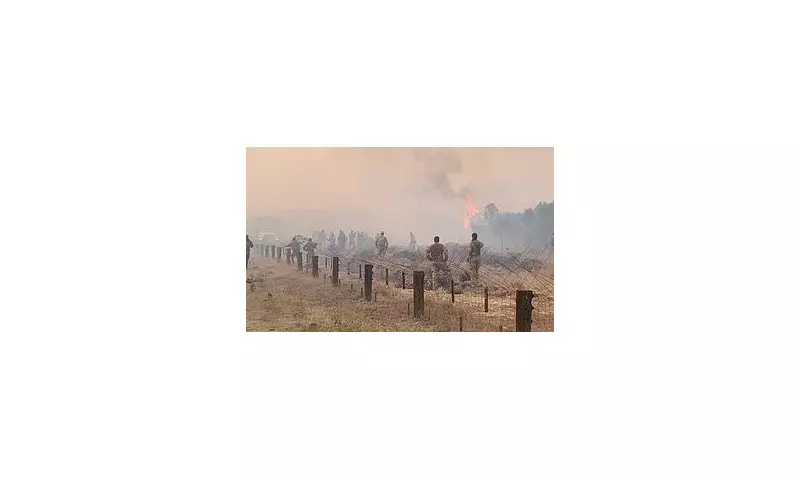
The British government is set to pay approximately £2.9 million in compensation to Kenyan victims after British troops accidentally started a devastating wildfire during military training exercises. The fire, which ripped through the Lolldaiga Hills region in March 2021, caused extensive ecological damage and destroyed property and livelihoods.
The out-of-court settlement follows a lengthy legal battle where over 5,000 Kenyan claimants sought justice for the destruction caused by the blaze. The fire began at the British Army Training Unit Kenya (BATUK) facility in Nanyuki during a routine training exercise.
Devastating Impact on Local Communities
The wildfire consumed nearly 12,000 acres of precious wilderness and farmland, leaving a trail of destruction in its wake. Local residents reported lost livestock, destroyed crops, and severe damage to their homes and property. The ecological impact on the region's diverse wildlife has been described as catastrophic by conservation groups.
Many affected families have struggled to recover from the incident, which destroyed their primary sources of income and left them facing significant financial hardship. The compensation package aims to address these losses and help rebuild damaged infrastructure.
Military Training Under Scrutiny
This incident has raised serious questions about the safety protocols surrounding British military exercises conducted overseas. Defence sources confirmed the fire started during a training exercise, though specific details about what triggered the blaze remain undisclosed.
The settlement comes after the UK Ministry of Defence initially resisted claims, creating diplomatic tension between the two nations. The resolution is seen as an important step in maintaining the UK's diplomatic relationship with Kenya, where British troops have maintained a training presence for decades.
The compensation agreement represents one of the largest payouts related to British military activities in Kenya and sets a significant precedent for how similar incidents might be handled in the future.





